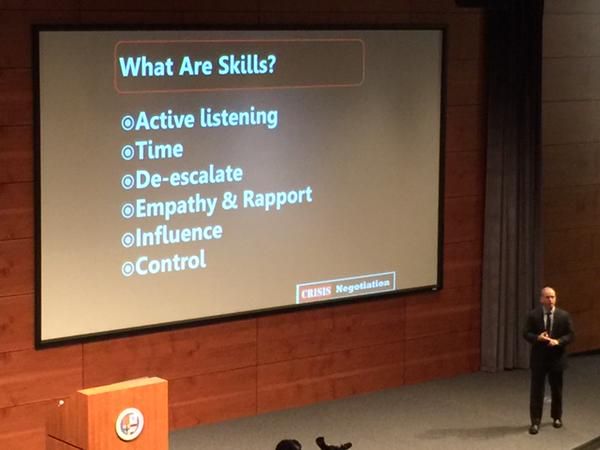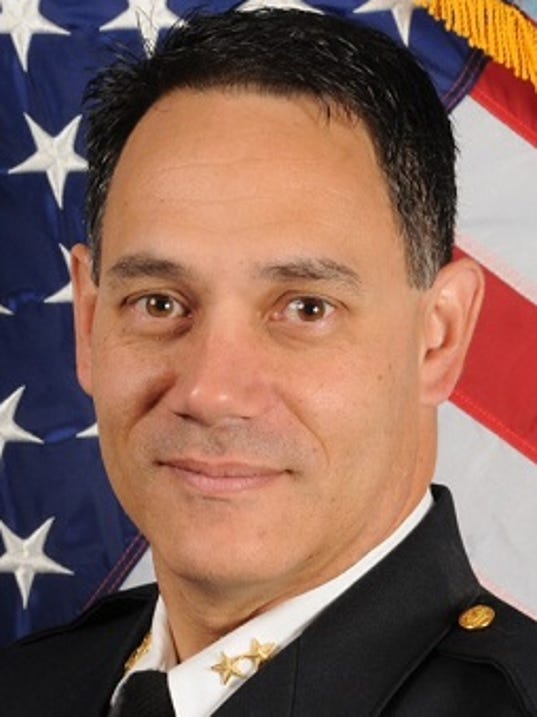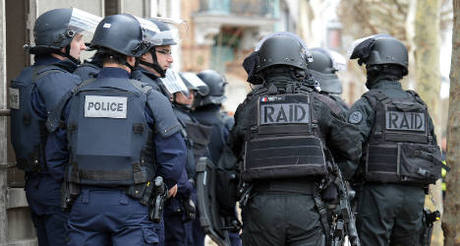BY: Samuel A. Farina, Jr.
NYAHN President and Retired
Deputy Chief of Rochester (NY) Police Department
On August 14,
2013 in St. Joseph, Louisiana, headlines on CBS news read the following, “The gunman in a
fatal hostage standoff wrote that he was angry at his ex-girlfriend's family
and believed they were responsible for a device in his head…”
20-year-old Fuaed Abdo Ahmed shot two hostages, killing one, at a rural
Louisiana bank before state police ended the 12-hour long standoff by shooting
him dead. Admed indicated during the negotiation that he had a device in his
head and wanted to have it removed.
Fearing for the safety of the two hostages Admed held and who actively
threatened to harm, a tactical solution was employed in an attempt to save the
lives of the hostages. It was learned
during the hostage situation that Ahmed was diagnosed and suffered from
Paranoid Schizophrenia.
Schizophrenia is
a chronic, severe, and disabling brain disorder that affects about (1) one
percent of people all over the world. People with schizophrenia sometimes hear
voices others don’t hear, believe that others are broadcasting their thoughts
to the world, or become convinced that others are plotting to harm them. These
experiences can make them fearful and withdrawn and cause difficulties when
they try to have relationships with others.
Most individuals with schizophrenia are not violent; more typically,
they are withdrawn and prefer to be left alone. However, studies indicate that
except for those persons with a record of criminal violence before becoming
ill, and those with substance abuse or alcohol problems, people with
schizophrenia are not especially prone to violence. There are other studies that suggest that probability
of violence with schizophrenics is five times higher than those absent the
disorder. About one-third of individuals with schizophrenia attempt suicide.
Schizophrenia is treatable with both medication and therapy.
Substance abuse significantly raises the rate of violence in people with
schizophrenia but also in people who do not have any mental illness. People
with paranoid and psychotic symptoms, which can become worse if medications are
discontinued, may also be at higher risk for violent behavior. When violence
does occur, it is most frequently targeted at family members and friends, and
more often takes place at home.
Negotiators who engage someone who is schizophrenic will observe
situations of thought disturbances, hallucinations, delusions and other
departures from reality. It is important
to address this situation with a number of specific communication strategies in
an effort to resolve the situation peacefully and, at the same time, having a
tactical plan at the ready in the event there is a need to save hostages,
especially family or friends of the subject.
As with all negotiations, communication strategies have a foundation in
utilizing Active Listening Skills to build a trusting relationship through
rapport building. This will prove to be
a significant challenge with someone who is schizophrenic. Due to the paranoia that routinely exists
with those who have schizophrenia, building relationship and trust probably
will not develop. Efforts to stall for
time to promote fatigue will be your best strategy to resolve a crisis
event. Listen and provide empathy while
being based in reality will allow for the subject tire. Avoid arguing and keep the conversation
ongoing to encourage ventilation, gain intelligence, gain an understanding as
to the subject’s state of mind, and gauge their level of episodic
condition.
The negotiator should be asking questions such as:
- What medications are
you taking?
- Are you taking your
medications?
- Have you stopped taking
your medication?
- What are the voices
saying or what are they telling you?
- What are you seeing?
- Do you want to hurt
yourself?
Access to a mental health professional as a resource to develop a
personality and psychological profile would prove useful with understating
medications and their effects, the psychological history of the subject and a
more specific communication strategy.
Given the frustration that may exist with mental health care providers
and those with mental illness who are in crisis, offering psychiatric services
in the early stages of the negotiation may prove counterproductive.
Mediations prescribed today for schizophrenia could have a timely effect
if taken during a crisis event and the subject should be encouraged to take
their prescription during the negotiation.
Often times the main reason for discontinuing the use of medications is
a result of the adverse side effects that consist of such ailments as
headaches, nausea, impotence and involuntary muscle contractions.
Appealing to the subject’s emotion of having to live with hallucinations
and/or delusions should be expressed.
Maintain reality and don’t fall victim to joining in with the subject’s
distorted thinking or behavior. Ask
intelligent questions about the subject’s hallucinations or delusions specific
to what they are experiencing.
Know that during the negotiation with a schizophrenic you will be
quickly be exhausted and frustrated by the situation. An appeal to the subject’s ego will go a long
way. In addition, the use of the media
as a means to publicly outline the paranoid’s concerns may be an option as a
resolution strategy.
These types of negotiations will prove to be the most taxing and
mentally challenging. It is important to
stay in our own reality and not enter into the subject’s distorted world. Stay true to the process of using time as a
means to promote fatigue and continuous communication. Constant risk assessment will be necessary
with the schizophrenic especially when there is evidence substance abuse in
combination of having hostages who are relatives/friends. There may be a need to quickly transition to
a tactical solution if there are communicated threats directed toward
others. Keep in mind suicide as a
potential concern during the course of any crisis situation and have an
affinity for extreme patience and enhanced flexibility.

























